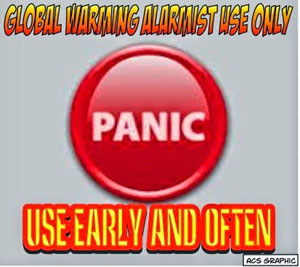What Will The Pope’s Al Gore Global Warming Encyclical, Expected 18 June, say?
With Pope Francis expected to release a major statement on climate change on 18 June, researchers and religious scholars are weighing in on what they expect the statement to say—and debating how much impact it may have.
Vatican watchers say the document—known as an encyclical —is being framed as a moral teaching rather than a scientific analysis. They note that the pope, a chemist by training and briefly by trade, accepts that climate change is underway and caused in part by human activity. So the encyclical is likely to focus on the consequences of climate change, for people and the planet, not the causes.
The letter will express the pope’s concern for the poor, predicts Thomas Reese, a Jesuit priest and senior analyst at the National Catholic Reporter in Kansas City, Missouri. “He's going to be saying that [the poor] should not bear the brunt of the impact of climate change, nor should they bear the brunt of responding,” he says. “The people who have benefited the most from the carbon-based economy are the people whose lifestyles need to change. They’re the ones who've had the resources, the wealth, and the expertise and knowledge to figure out what to do.”
“Catholics accept that we're living in an evolutionary universe,” Reese says. So the encyclical may address questions such as: “ ‘Where is the world moving to?’ and ‘What is God's plan for creation?’ and ‘What [is] our role in it?’ ” he says. And it may make it clear that “our role is certainly not to destroy species after species” by failing to address climate change.
By highlighting such ethical matters, the encyclical can make an important contribution to discussions often dominated by technical issues, says physicist Hans “John” Schellnhuber, director of the Potsdam Institute for Climate Impact Research in Germany and chair of the German Advisory Council on Global Change. “The scientific, economic, and moral dimensions all belong together,” says Schellnhuber, who this past April was invited by the
church’s Pontifical Academy of Sciences to a discussion of climate change involving about 60 scientists, religious leaders, and businesspeople.
How much influence the encyclical will have on government policies is up for debate. On one hand, there are more than 1 billion Catholics worldwide, according to a 2011 report by the Pew Research Center. But “just because the pope or important people in the hierarchy of the Catholic Church make a pronouncement doesn't necessarily mean that everybody falls into lockstep with their points of view,” says journalist Lee Rainie, who directs Internet, science, and technology research at the Pew Research Center in Washington, D.C. American Catholics, for example, often disagree with the church’s disapproval of abortion and same-sex marriage.
Still, “when the pope comes out in favor of action on climate change, it helps that to become a more mainstream position,” says Ken Caldeira, an atmospheric scientist with the Carnegie Institution for Science’s Department of Global Ecology in Stanford, California. “It tends to put the burden on those who don't want to have action on climate to … explain why.” Addressing climate change will require “lots of actions by lots of people,” he says, “and I think the pope is more influential than most.”
Biologist Elizabeth Hadly of Stanford University in California holds similar views. “There's a lot more than just talking that has to happen before anything changes,” she says. But “to have a religious leader talk about climate change and environmental degradation and our obligation to protect the environment is profoundly important because it means that the pope has a deep understanding of how this affects humanity's survival.”

Comments
Post a Comment